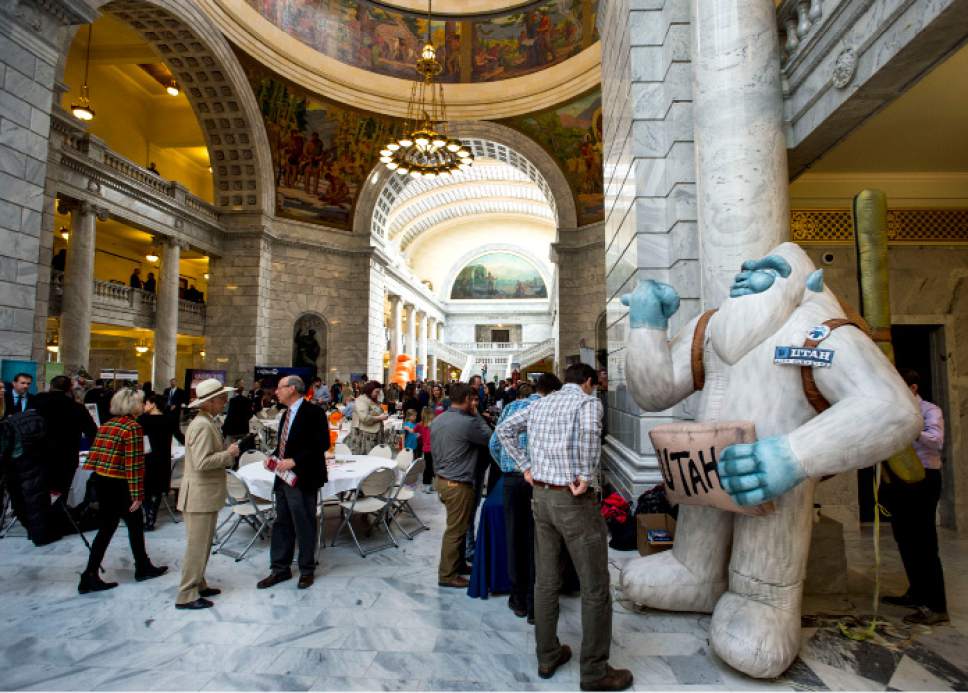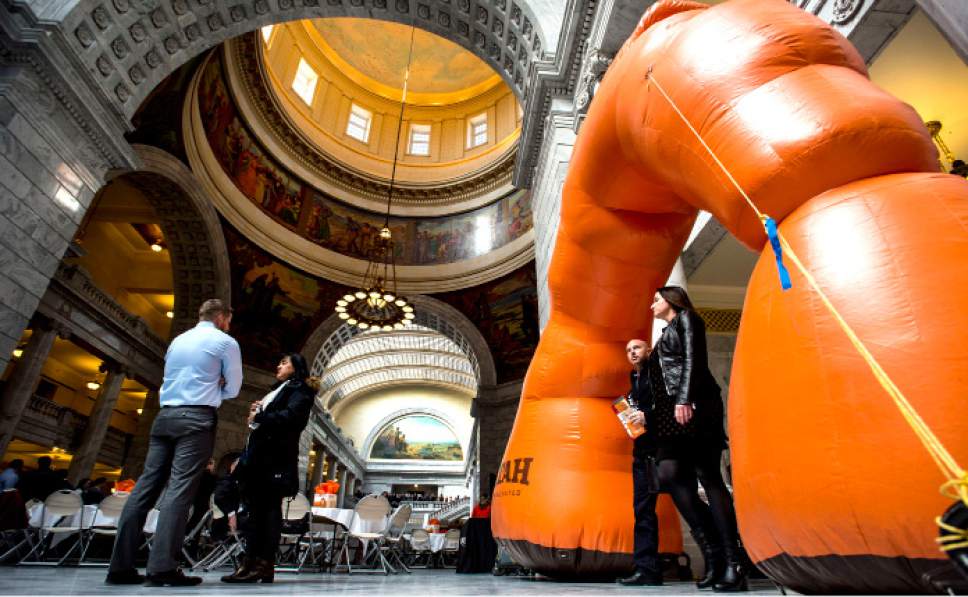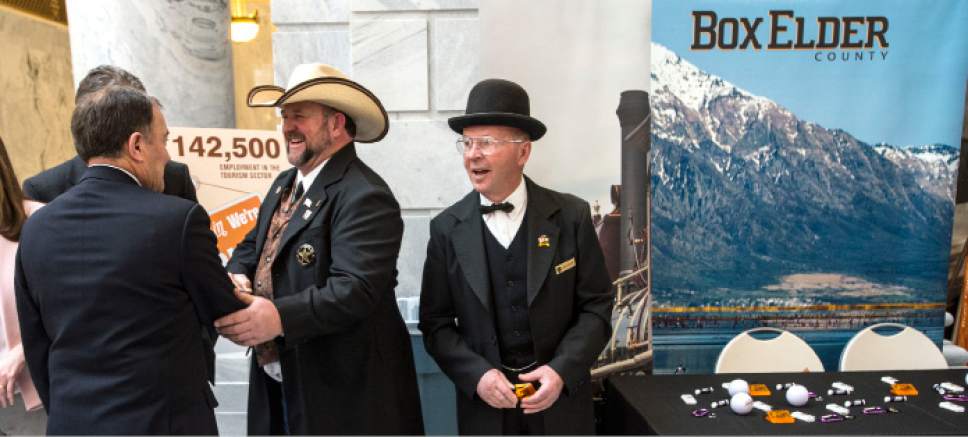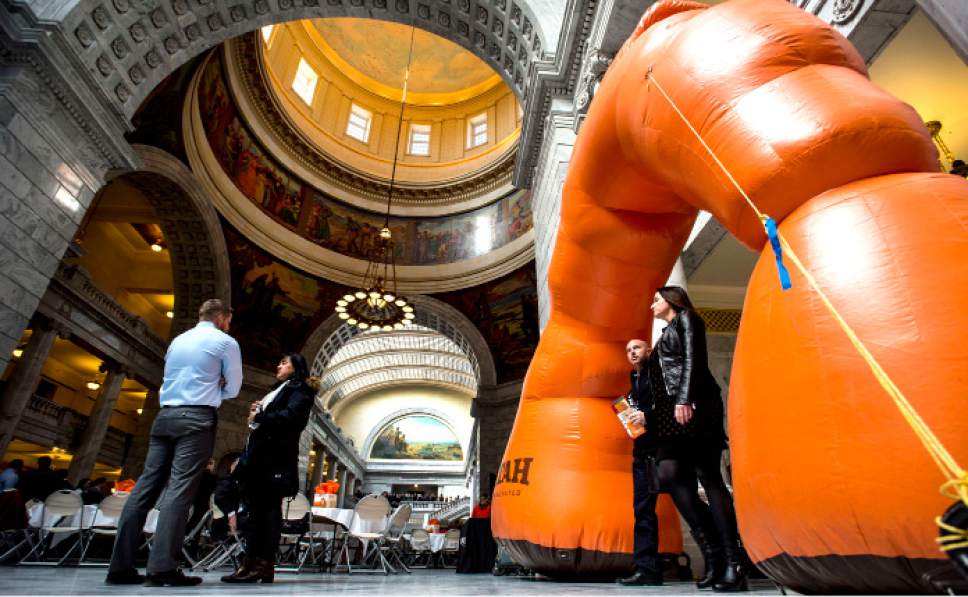This is an archived article that was published on sltrib.com in 2017, and information in the article may be outdated. It is provided only for personal research purposes and may not be reprinted.
Utah tourism officials said Monday that they are promoting the new Bears Ears National Monument on a state website despite a push by the governor and other leaders to have the designation rescinded.
Republican Gov. Gary Herbert signed a resolution earlier this month that passed through the Legislature and called on President Donald Trump to repeal the designation President Barack Obama declared during his final weeks in office.
Utah's congressional delegation, led by U.S. Sen. Orrin Hatch, is also pressuring Trump on the matter.
Herbert and others say they want to ensure that the lands in southeastern Utah are used for a mix of purposes, including development, drilling and mining.
The outdoors industry sees that as a threat to the state's majestic outdoor areas and is pushing back.
The state had already been promoting some of the natural features of the area online, said Vicki Varela, Utah Office of Tourism managing director. But Varela said the state can now be "more focused" because of the monument.
The tourism office has a full web page dedicated to the 1.35-million-acre national monument, along with subpages highlighting its various features.
The website calls the monument's landscape breathtaking while warning that it is rugged, wild and remote, without the services or facilities found at national parks in the state.
Varela said officials aren't sure yet how they'll promote the area because it's now more of a destination for serious outdoor enthusiasts.
Varela said later Monday afternoon that the tourism office is not promoting the monument on social media accounts or paying for a marketing campaign for it. The office promoted Utah's national parks with the Mighty 5 advertising campaign.
Varela and Herbert spoke to reporters Monday after the release of a new University of Utah report that shows tourism spending in Utah hit a record of $8.17 billion in 2015.
That marked a 2 percent increase from the year before, putting tourism among the largest industries in the state, according to the report by the university's Kem C. Gardner Policy Institute.
The governor didn't know the state was promoting Bears Ears National Monument to tourists. Herbert said he and some American Indians are concerned about attracting visitors who will trample on sacred lands.
"It's not like they want to put a neon sign out there, saying, 'Come here and camp,' " Herbert said of the tribes.
The new tourism spending report comes amid heated debate over the state's role in management of Utah's iconic public lands. The discussions escalated after the designation of the Bears Ears monument in December despite staunch opposition from Herbert, the state's congressional delegation and other top leaders.
In protest over calls to rescind the designation, outdoor industry giant Patagonia and several other companies are vowing to boycott the semiannual Outdoor Retailer show, which brings $45 million in annual spending to Utah.
REI and The North Face, however, are among companies saying they'll still attend shows in Utah.
Show organizers last week announced that they are considering moving the event after two decades in Utah, in part because of the push to rescind Bears Ears.
Varela said the Outdoor Retailer show is "a big part of Utah's brand," and a longstanding, important part of the state's economy that they would love to keep.
Herbert said he hopes a Thursday meeting with outdoor retailers will allow all sides to try to understand each other, reiterating his belief that Utah is the best place for the show.
"We need to just calm down," Herbert said. "Let's see if we can find a common way to get to a goal we all want to share."









